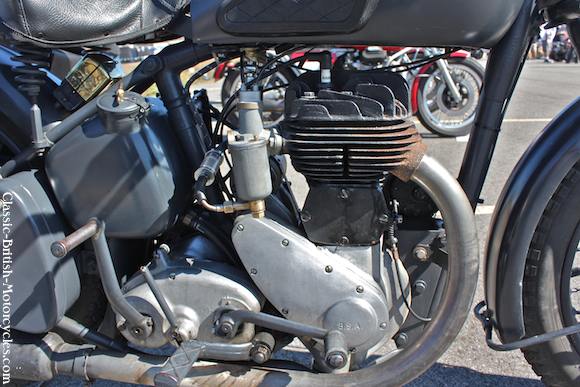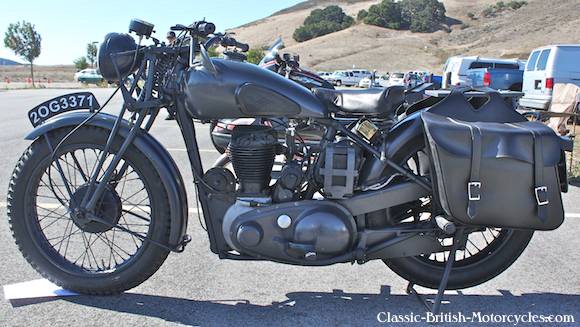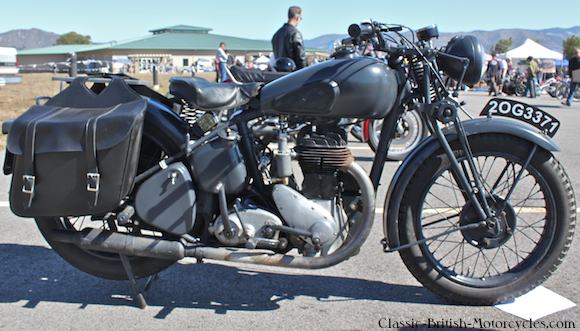The 1945 BSA M20 was the last year of production during World War 2 and and just a part of BSA’s massive wartime contribution to Britain’s war effort. 1937 was its first year of production that would last until the late 1950s. Designed to be simple, rugged and reliable, the WM20 was a side-valve (flathead) 500cc air-cooled single with a cast-iron top end. It had a rigid frame and BSA’s pre-war girder front end. Everything on the bike was extra-heavy duty for military use. The M20 was designed by Val Page as a heavy-framed sidecar rig, so the engine had tons of low-end torque. When sent to the British Army for testing (without the sidecar), they didn’t like it saying it was heavy, slow and had poor ground clearance. But it was saved by its toughness, reliability and ease of maintenance and repair. Of course, BSA was the world’s largest motorcycle maker at the time, and also a huge defense contractor, and that probably helped. In the end, the Army, the Royal Navy, and the RAF placed huge orders for the M20, along with Sweden, South Africa and India.


This 1945 BSA M20 was one of the 126,000 M20s that served during the War, making it the most-produced motorcycle of World War II. The BSA M20 was also one of the longest-serving military motorcycles in British motorcycle history. BSA’s Small Heath factory was bombed by the Germans in 1940, but mega-corporation BSA had 67 other factories scattered around England, so production quickly resumed.

1945 BSA M20 SPECIFICATIONS
|
Engine type: Displacement: Bore & Stroke: Compression ratio: Fuel system: Ignition system: Horsepower output: Primary drive: Clutch: Gearbox: Final drive: Suspension, front: Suspension, rear: Brake, front: Brake, rear: |
Air-cooled, side-valve single 496cc / 30.27 ci 82mm X 94mm 5.0:1 Amal carburetor Lucas 6V magnetodyno 13 hp @ 4200 rpm Chain Multi-plate, wet 4-speed, right-foot shifting Chain Girder forks Rigid 7-inch SLS 7-inch SLS |


